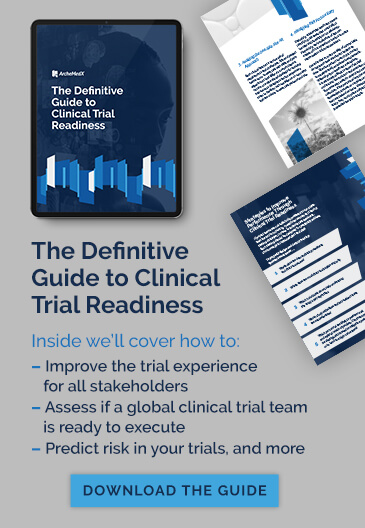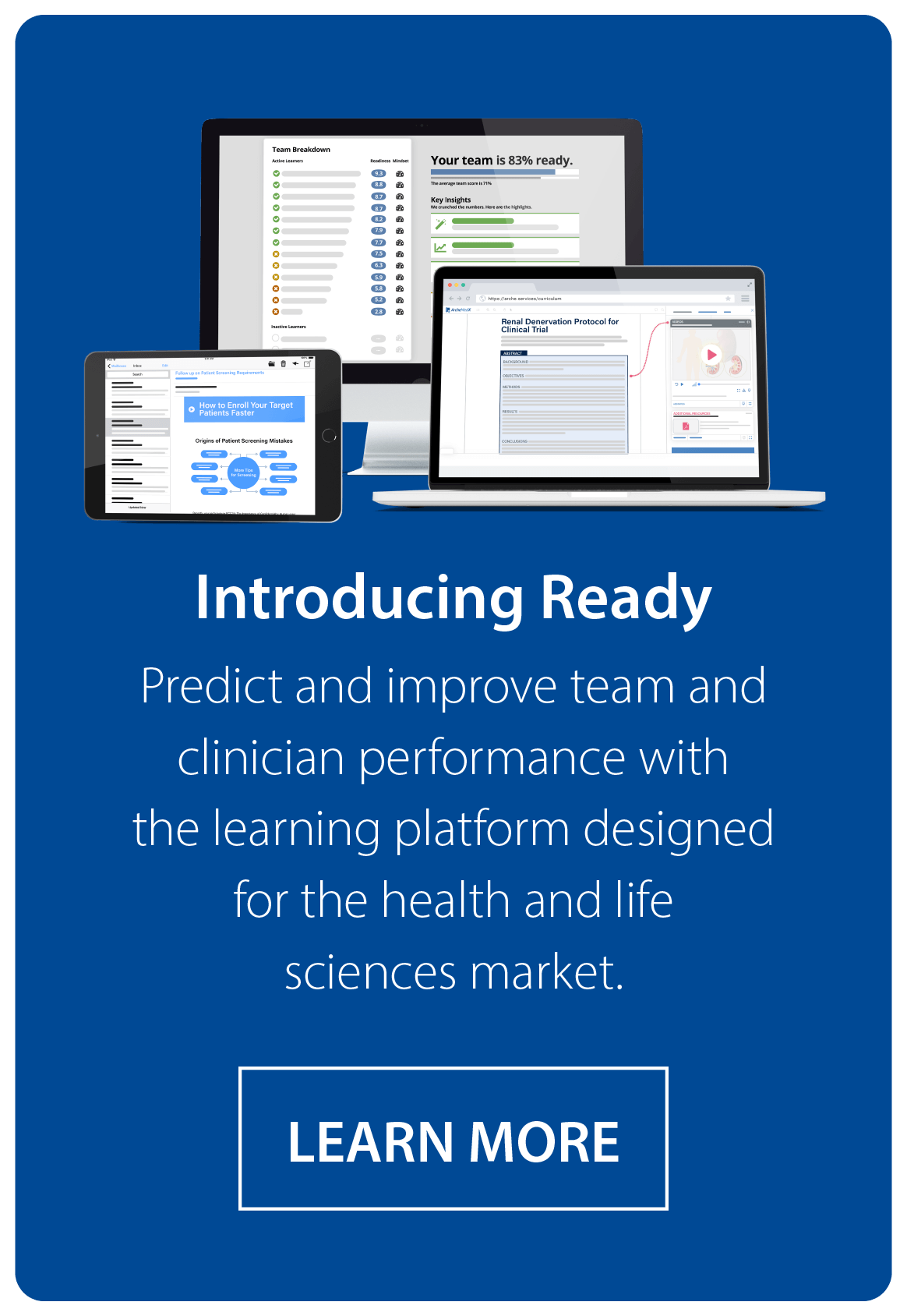The following is an excerpt from our ebook “The Definitive Guide to Clinical Trial Readiness.” Click here to read the ebook in its entirety.
Clinical trial readiness has to do with building systems within a clinical trial that better prepare all project staff for the challenges and responsibilities they will face during the trial. Assuring readiness depends on sponsors’ ability to . . .
- Assess which teams and individuals truly comprehend trial requirements
- Predict and monitor risk based on staff’s demonstrated knowledge and confidence
- Gain actionable insights into staff and site preparedness
- Address problems as they are taking shape, rather than wait for them to become fully formed
Readiness can relate to sites, staff, and even patients — and its impact can be monumental. Improving readiness can . . .
- Accelerate site initiation
- Increase operational efficiency
- Improve staff oversight
- Reduce screen failure rates
- Reduce protocol deviations
- Improve subject retention
- Save time
- Avoid additional costs
A key component of readiness is evaluating and improving the preparedness of personnel at each site.
This includes assessing . . .
- Clinical skills
- Subject knowledge
- Regulatory adherence
- Patient management
- Protocol understanding
- Clinical trial procedure competence
When the staff is evaluated based on readiness, team leaders can . . .
- Accelerate onboarding for project members entering during the trial
- Identify both low and high performers
- Inform clinical operations where they most need to focus time and resources
- Prioritize sites for initiation and monitoring coverage
- Predict staff-based risk
This blog post is an excerpt from our ebook “The Definitive Guide to Clinical Trial Readiness.” Click here to read the ebook in its entirety.





